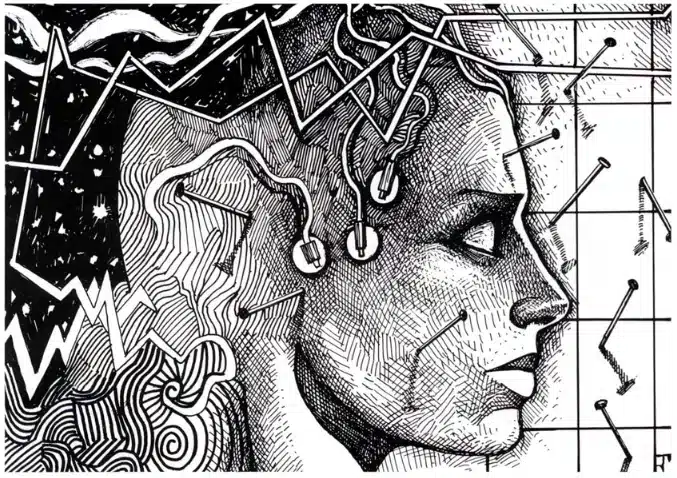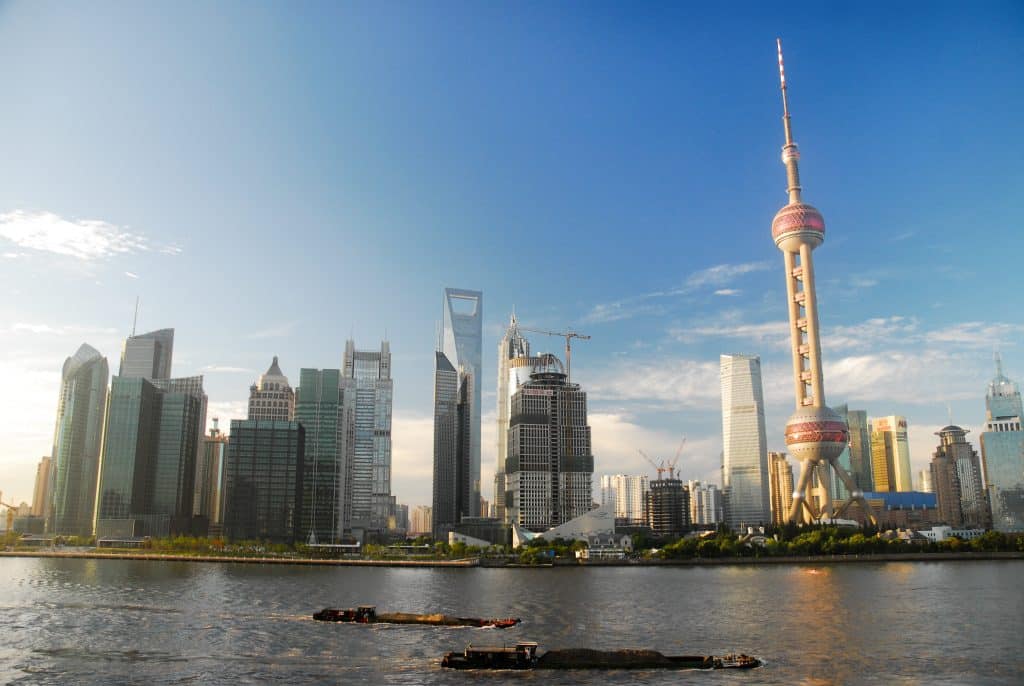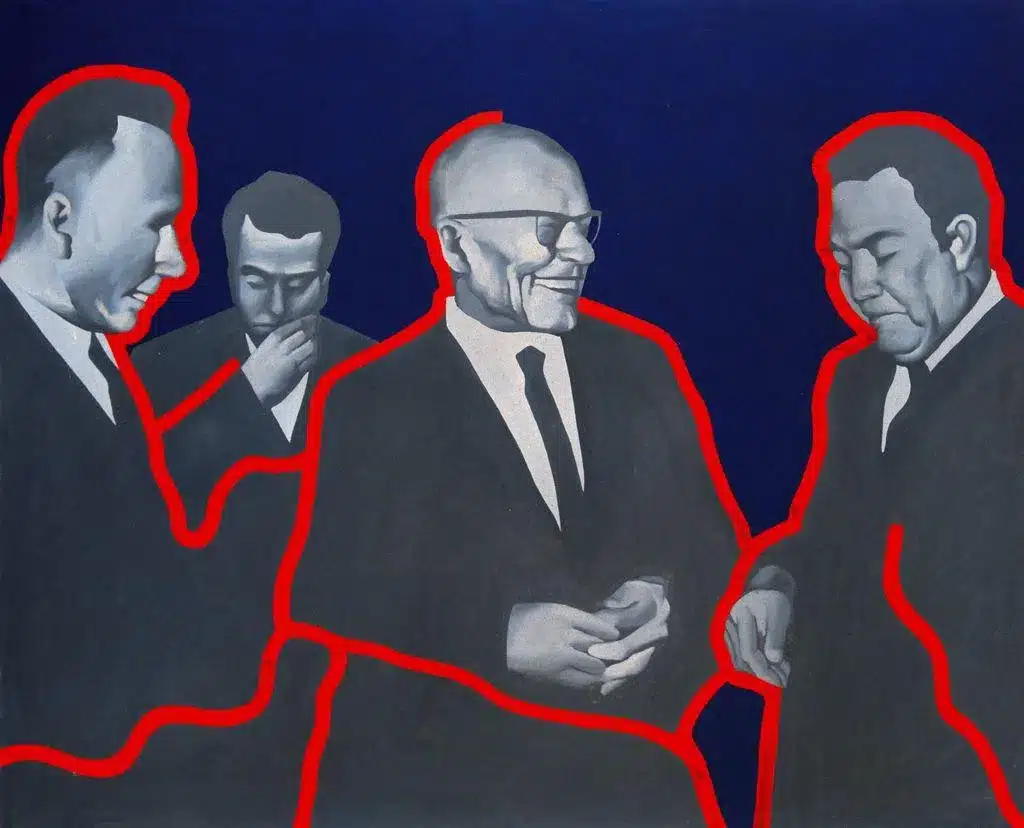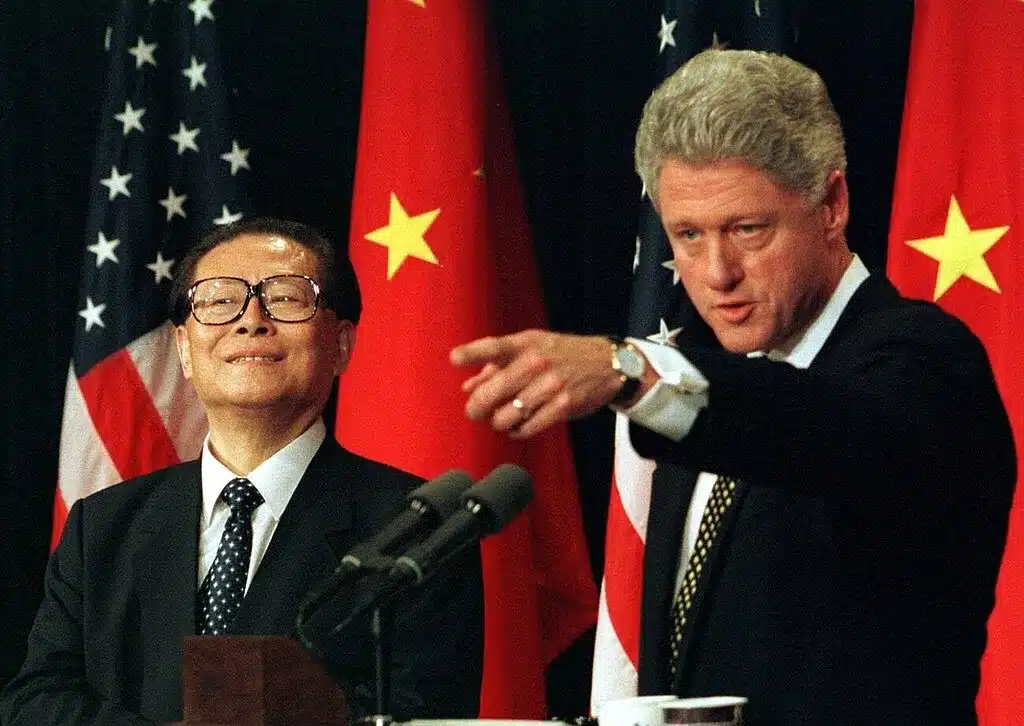The Politburo’s Recent Study Session: Who is Zhang Weiwei?
On May 31, the thirtieth collective study session of the Politburo was held on the topic of “telling the good China story” and “promoting China’s voices on the global stage.” Beginning in October 2017, this type of collective study has been held on the same day as regular Politburo meetings—each study is conducted with a different topic, ranging from cutting-edge technologies like blockchain to historical analysis of CCP. Experts are invited to ‘lecture’ on a subject to members of the Politburo. This year, Professor Zhang Weiwei from the China Institute at Fudan University was given the lectern to speak in front of the nation’s top leaders about China’s communication on the international stage. Of the previous twenty-nine collective studies, only one of them—the twelfth session conducted on January 25, 2019—was also related to communication, which concentrated on the integration of digitalization and social media and media’s role in “promoting correct values within the Chinese society.”
Since the twelfth session, the Party’s focus on communication has clearly broadened and shifted to the international stage as the global view of China has precipitously turned negative due to China’s ‘wolf warrior diplomacy,’ the human rights crisis in Xinjiang, its assertiveness towards Taiwan, and its erosion of democratic freedoms in Hong Kong. Zhang is a puzzling choice for a speech about softening China’s global image. He is no stranger to controversial remarks about international affairs, once claiming that the Western democratic system suffers from ‘genetic defects.’ Who is Zhang Weiwei? How does he perceive U.S.-China relations and the division between the East and the West more generally? What is his perception of the long-existing, but recently intensified, tensions between the U.S. and China? Do his opinions, as many have argued, contribute to Chinese ‘wolf warrior’ diplomacy and hostile rhetoric?
Who is Zhang Weiwei?
Zhang was born in 1958 in Shanghai, China. After graduating from Fudan University with a B.A. in Foreign Language in 1981, Zhang studied for a master’s degree at Beijing Foreign Studies University before working at Ministry of Foreign Affairs (MFA) as an English interpreter in 1985. According to The People’s Daily, Zhang served as a senior interpreter at the MFA for a number of prominent Chinese political leaders, including Deng Xiaoping and Li Peng.[1] In 1988, he left the Chinese Ministry of Foreign Affairs to work at the United Nations Office in Geneva as a simultaneous interpreter. Meanwhile, he enrolled at the University of Geneva and eventually earned a Ph.D. degree in International Relations in 1994. His Ph.D. dissertation was titled Ideological Trends and Economic Reform in China, (1978-1993), which explored the post-Mao ideological currents and their impact on China’s economic reform.[2] Afterwards, he was a visiting fellow to Oxford University*, a professor at Geneva School of Diplomacy and International Relations*, and an adjunct professor at multiple Chinese universities.[3] He returned to Shanghai in 2010 and worked at the Shanghai Academy of Social Sciences and the Chunqiu Institute. He currently directs the China Institute at Fudan University, one of a few think tanks supported by the central government of China.[4]
Zhang Weiwei’s major perspectives
“China’s way surpasses that of the West”
Following China’s reform and opening up under Deng Xiaoping in the 1980s, China experienced unprecedented economic growth. One of the most prominent shifts at the time was the gradual acceptance of Western concepts of the market, which played a vital role in the massive de-collectivization of agriculture and privatization of a large part of the Chinese economy. Zhang has sharply criticized the idea that China’s economic success stems from the adoption of the Western model and, instead, attributes China’s miraculous rise primarily to “sticking to its own way”(“坚持自己的道路”). Comparing China’s development to the West, he has previously laid out what he believes led the two civilizations to evolve differently:
“China’s rise has not copied western model and has not repeated its bloody history. The problems a country with thirteen billion population encountered while conducting such a large scale industrial and social revolution had never even occurred in the Western history. During European industrial revolution, the enormous wealth gap, the lack of social justice, the seriousness of the corruption, and the bloodiness of the invasion are shocking. By massively occupying foreign territories and harshly slaving other countries’ people, those countries ‘neutralized’ their social conflicts. But today, China resolves all the conflicts and problems that have occurred during her industrialization and modernization. Not only did China not invade or exploit other countries, China has also brought real benefits to most Chinese people and the world. China is the locomotive that drives the world economy. From this perspective, China’s success and China’s model are special.”— “Chinese Model and Chinese Narrative’s Global Meaning” (“中国模式和中国话语的世界意义”经济导刊2014年第4期,2016.11.27)
Evident from Zhang’s rather dismissive and negative attitude when discussing the West, his perspective simply acknowledges how China’s model deviates from that of the West without acknowledging or negating the role of Western institutions. This reflects Zhang’s broader identity as a staunch defender of China’s superiority over Western models, which is displayed throughout his writings and speeches. In his article, “The China Road Is Far More Superior Than the Western Model” (“中国道路对西方模式的超越”), Zhang provided the following justifications for this perspective:
(1) “China adheres to ‘practical rationality,’ not institutional bias” 坚持“实践理性”,避免制度偏见
(2) “China sticks to openness and diversity, not complacency” 坚持开放包容,避免固步自封
(3) “China believes in the welfare of her own people (“Minsheng”), not empty talk on democracy” 坚持民生为本,避免空谈民主
(4) “China keeps innovating, not blind emulation” 坚持综合创新,避免简单照搬.
Zhang defends the superiority of China’s model by arguing that Western democracy is rift with “institutional biases,” “complacencies,” and “empty talk.” Moreover, he suggests in many speeches that problems on Western democracy could forebode its destiney as a transitory system in human history– what he called “a flash in the pan” (昙花一现). In the article “Understanding Western Democracy’s Dilemma from Brexit”(“从英国脱欧看西方制度困境” 观察者网,2019.06.30), he said that,
“I argue that (Western democracy) has three genetic flaws or three wrong assumptions in the real-life application. First, people are rational; second, rights are absolute; third, procedures are versatile. I believe that if Western institutions cannot tackle these flaws, Western political system will inevitably decline.”
In Episode 29 of the TV show called “This is China,” he made another comment on Western electoral systems:
“In many Western countries, the multiparty system has become a democracy game… This game contains no concepts on merit-based selection. Winners from the game are usually brilliant talkers, few of which are actually capable of governing… Neither their experiences on governance nor moralities matter. As long as they trick enough followers (to vote for them), victory is in the bag.”
When asked if there are any remedies to Western democracy, Zhang suggested that Western countries should put more effort into learning from China, particularly China’s political system and Chinese politicians’ willingness to study. “Some Western countries’ political leaders’ knowledge structure is too narrow and outdated,” he said, “I believe Western democracy could borrow something from China’s Cadre Learning System (干部学习系统).”[5]
“We need to build a Chinese narrative”
Zhang Weiwei’s second major perspective, also the one which the Politburo attempts to “learn” from him during the study session, is his stance on promoting a “Chinese narrative” on the global stage. Starting from 2016, Zhang has written about how to make China’s external publicity (外宣) strategies more effective.
In a 2015 interview with New York Times, Zhang explained why this narrative is necessary and what should it look like.
“There is a clear and growing demand for such a discourse. China has risen to such a degree that it can’t evade any questioning from within or without. Both Chinese and foreigners want to make better sense of what China has done, is doing and will do in the future. In economic terms, demand defines supply.”
“China’s new type of narrative should be comprehensive, thorough, robust and international. Comprehensive, so as to be able to explain China’s achievements, setbacks and future. Thorough, to be able to explain Chinese affairs clearly and thoroughly. Robust, to be vigorous enough to engage critics in meaningful dialogues and debates. International, to be readily understandable to most non-Chinese.”
In another article titled “Chinese Model and Chinese Narrative’s Global Meaning”(“中国模式和中国话语的世界意义”) published in 2016, Zhang described how to establish such a “Chinese Narrative” with a specific example:
“We sometimes have a lot of channels to spread our voices, but the voices are constrained by the Western narrative. The result is that voices do not have much strength. For example, American people tell us that China’s human rights conditions are deteriorating, we respond that we are still a developing country. This kind of language is weak. A better way is to question the U.S. preemptively. We should say the gravest violation of human rights in this century is the U.S. war against Iraq. If Americans cannot explain this as clearly as possible, why would they have the qualification to talk about the human rights situation in China?”
Through preemptive questioning, Zhang encouraged Chinese people to identify foreign hypocrisy and engages in logical fallacies such as whataboutism. He believed these steps were necessary to help China take the advantage in the global communication and transmit its real story to the world.
Public Reaction to Zhang’s Invitation
Zhang is supremely confident that the Chinese model—the one party system that combines ‘visible hand’ with ‘invisible hand,’ election with selection, rule of law with rule of morality—is far superior than that of the West. In the last two decades, Zhang has passionately advocated that Chinese people should have more confidence in discussions and studies of institutional comparison with the West. In 2014, he hosted a talk show called “Chinese, Be Confident” (中国人,你要自信). In 2019, he launched another show called “This is China” (这就是中国). Both shows were designed to introduce his viewpoints and to encourage the Chinese people to have more confidence in the Chinese system. On Bilibili, a Chinese video-sharing website favored by Chinese teenagers and young adults, “This is China” has been viewed more than forty million times and has a rating of 9.6 out of 10. In April, The Carter Center China Focus published an informal survey, aiming to find out the most representative Chinese opinion leaders in Government, Business, Academics, and Society. Zhang Weiwei is listed #3 in Society category (before him is Hu Xijin #1 and Jin Canrong #2), indicating his opinions’ influence on the Chinese public.
The increasing popularity of Zhang’s perspectives on “Chinese narratives,” however, also corresponds with the rise of so-called ‘wolf-warrior’ diplomacy that has precipitated the worsening of the Sino-Western relationship. Last year, in response to Western countries’ increasing critics of China, most of which concentrated on China’s mishandling of the outbreak of Covid-19, China Foreign Ministry Spokesperson Zhao Lijian posted multiple comments on Twitter, including an unsubstantiated article attributing Covid-19’s origin to a lab on an U.S. military base and a fake image showing an Australian soldier beheading a child. Early this year, a Chinese ambassador in Brazil named Li Yang called Trudeau a ‘running dog’ of the West using his official Twitter account. This type of response—answering the critics by questioning those who criticize preemptively—is exactly the tactic Zhang Weiwei proposed in his article in 2016 (see quotes in this article from “Chinese Model and Chinese Narrative’s Global Meaning”). The latest invitation from Politburo to the collective study session might be the greatest indication of how favored Zhang’s ideas are among the nation’s highest policymakers.
During the study session, President Xi said, “We must pay attention to a good grasp of the tone, as well as be open, confident and humble, try our utmost to portray an image of a reliable, lovely, respectable China.” Many people take it as a sign that China will start to soften its tone in its interactions with other nations and, potentially, abandon its ‘wolf warrior diplomacy’ in the future. Indeed, the past years of ‘wolf warrior’ diplomacy have greatly damaged economic and cultural exchanges between China and other countries. Resuming civil discourse and respect for a ruled-based international system would significantly alleviate the current tension. However, by sieving through “lecturer” Zhang Weiwei’s perspectives, the possibility for significant changes in China’s effort to engage the West remains unlikely. Without emphasizing the importance of mutual understanding, the “confidence” could easily degenerate into condescension and prejudice—neither of which is conducive to improving the U.S.-China relationship. Zhang’s lecture at the study session, along with his seemingly popular perspectives, may be an indicator of ongoing ‘wolf warrior’ diplomacy but with a more approachable facade. On China’s social media platforms, it is not difficult to find public reaction to Zhang’s high-profile appearance at the study session that is largely characterized by scorn, disappointment, and frustration with the nation’s leadership. However, given the current tightening of public opinion in China, no scholars have openly challenged Zhang’s assumptions.
References:
[1] 陈振凯,张雅凌“张维为:中国崛起的故事很精彩”人民网,08-30-2018, http://politics.people.com.cn/n1/2018/0830/c1001-30259722.html?form=rect
[2] Weiwei Zhang,“Ideological Trends and Economic Reform in China, (1978-1993)” The Graduate Institute of International and Developmental Studies, 1994, https://repository.graduateinstitute.ch/record/940
[3] Despite multiple Chinese medias quote extensively on Zhang’s affiliation with Oxford University, we are not able to verify it on the Oxford University’s website. There are also some controversies about his affiliation with Geneva School of Diplomacy and International Relations, which does not seem to have any accreditation.
陈振凯,张雅凌“张维为:中国崛起的故事很精彩”人民网,08-30-2018, http://politics.people.com.cn/n1/2018/0830/c1001-30259722.html?form=rect
[4] Sarah Tilton, “Zhang Weiwei Talks About His New Think Tank, U.S.-China Relations and Why He Loves Bhutan,” Forbes, 30 October 2015, https://www.forbes.com/sites/sarahtilton/2015/10/30/zhang-weiwei-talks-about-his-new-think-tank-u-s-china-relations-and-why-he-loves-bhutan/?sh=68f73cf92aee &
朱敏洁,“张维为:我回国是为了参加中国话语权的保卫战” http://cn3.uscnpm.org/model_item.html?action=view&table=article&id=25107
[5] 张维为,“给西方民主把把脉”观察者网,08-11-2019,https://www.guancha.cn/ZhangWeiWei/2019_08_11_513020_2.shtml








